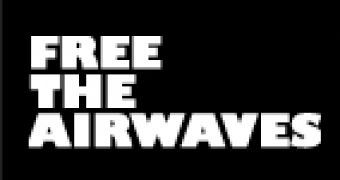Google has initiated the program "Free the Airwaves," which comes as a continuation to its efforts to determine the Federal Communications Commission to accept the free use of "TV white spaces." These are the analog frequencies that will be freed-up starting with February 2009, when broadcasters will be forced to an exclusive use of the frequencies in the digital spectrum. Unlicensed spaces can be used to provide Internet access to the communities where broadband is not yet a reality.
"Free the Airwaves" is enforced by an online petition that users are advised to sign. To be more persuasive, the petition also includes some of the reasons for which people should sign it, as well as why the FCC should take into account their expressed desire. Some of the advantages that the free allocation of the white spaces will bring, according to Google, are: the development of a global wireless broadband network, helping students who don't have the physical possibility to go to school have remote access to education, enable all the schools in the U.S. with access to high-speed mobile Internet, strengthen the security of public communications and bring Internet to the rural communities where this hasn't been possible until now.
"There's been years of debate about what to do with those TV white spaces once they actually become freed-up by the TV stations. The time is now, the broadcasters are moving out of that spectrum in February 2009, so Google has joined a really broad coalition includes device makers - Dell, Philips Electronics, as well as traditional Google rivals like Microsoft. We're all speaking at one unified voice saying we don't believe that this spectrum should go for one company's exclusive use. Instead, we want to see something more like Wi-Fi." says Minnie Ingersoll, Google Product Manager on the website that has been especially set up to advocate this cause.
Of course, Google is a commercial company and not a human rights organization, so a prospective FCC positive answer will bring in a larger audience for the giant. The Google official explains that a thumbs-up from the government implies more than that. "There's no doubt that if these airwaves are opened up to unlicensed use, more people will be using the Internet. That's certainly good for Google (not to mention many of our industry peers) but we also think that it's good for consumers."

 14 DAY TRIAL //
14 DAY TRIAL //